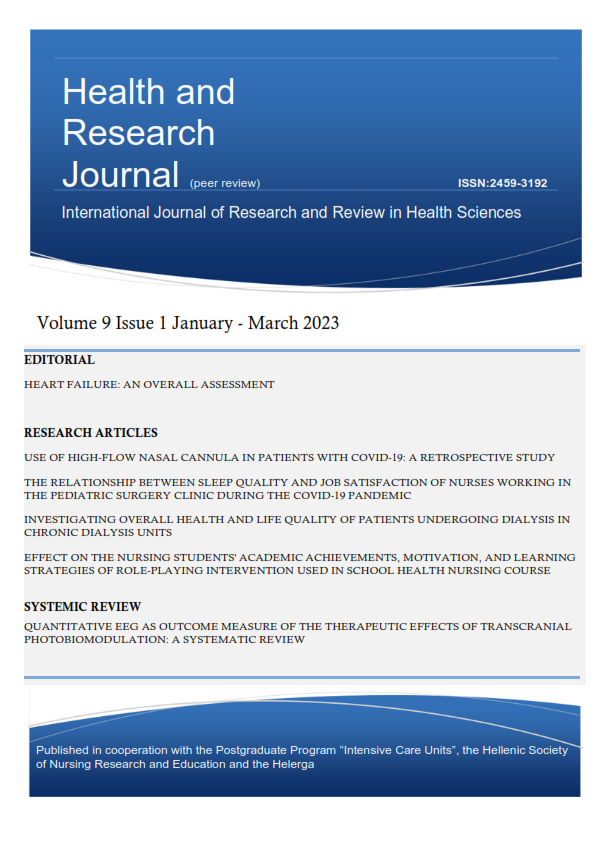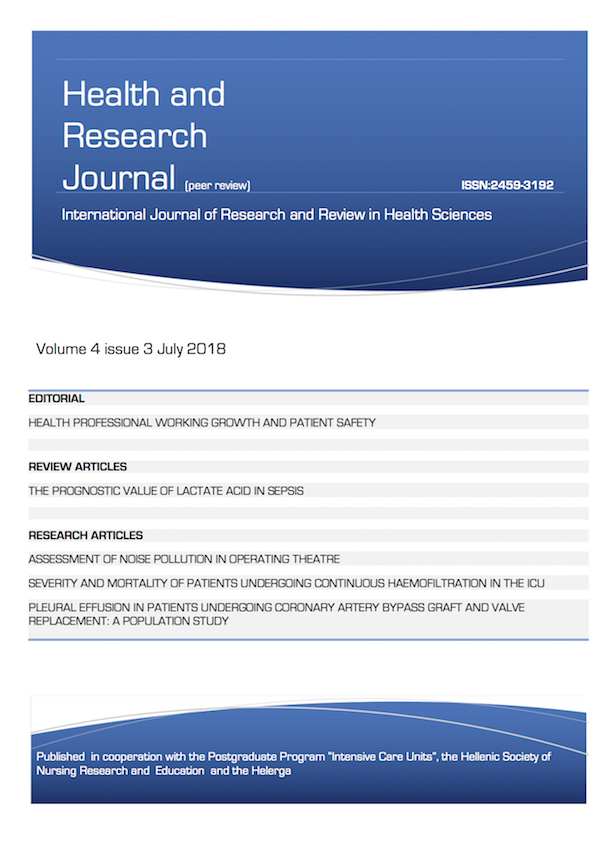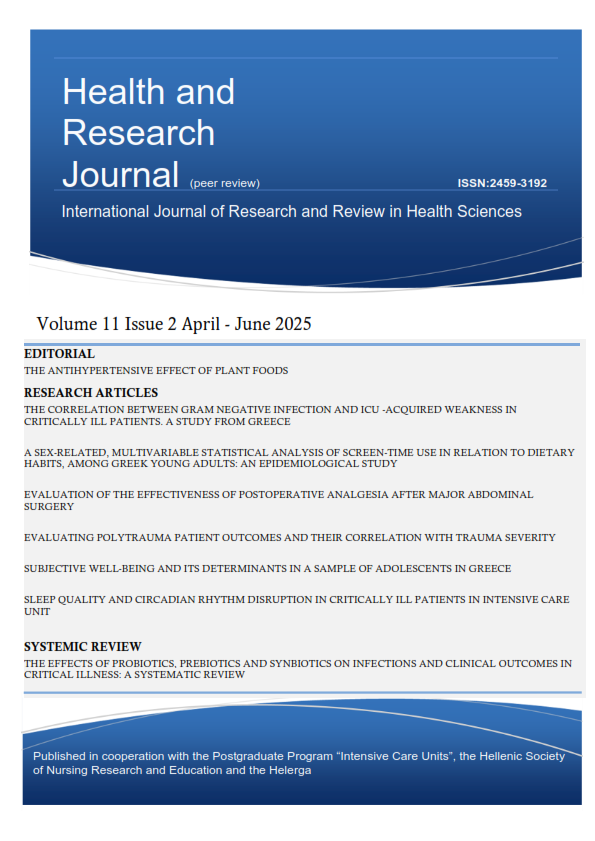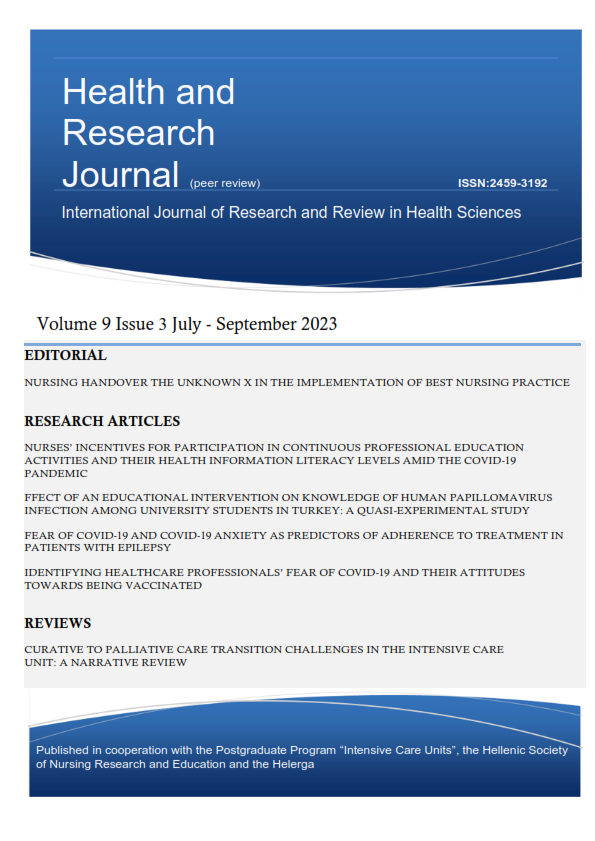Investigating overall health and life quality of patients undergoing dialysis in chronic dialysis units Life quality of patients in dialysis units

Abstract
Background: Dialysis patients experience intense psychological and emotional changes and symptoms that affect their daily quality of life.
Aim: The aim of this study is to investigate the factors affecting the overall health and life quality of patients undergoing dialysis.
Methods and Material: This cross-sectional study involves 49 patients undergoing dialysis, during June and August of 2019 in the hemodialysis units in Athens. Intentional sampling was used as the sampling method and the research tool was the questionnaire (KDQOL-SF ™ –2009). IBMSPSS 25.0 was used for data analysis. Frequency distributions were calculated, 95% confidence intervals with bootstrap techniques, while the non-parametric rho-Spearman correlation coefficients of the KDQOL-SF subscales were also calculated and followed by multiple linear regressions of the Total Health Scale that determine the quality of life.
Results: The most important and positive findings regarding the quality of life of the participants were the social support the patients received 57.1%, the encouragement from the staff of the nephrology department 44.9%, the cognitive function 82.4%, and patients satisfaction 84.3%, while work status 16.3%, pain 64,4%, sexual function 37%, the physical function 58.8%, scored the worst results. Scores representing the emotional well-being of the patient, a value closely related to the quality of life, were moderate.
Conclusions: The present study shows the need for intervention planning for patients with ongoing monitoring, as well as creative employment and work programs to achieve an improvement in their overall health and quality of life.
Article Details
- How to Cite
-
Moustakis, I., Filippas, M., Koretsi, M., Linardakis, M., & Rikos, N. (2023). Investigating overall health and life quality of patients undergoing dialysis in chronic dialysis units: Life quality of patients in dialysis units. Health & Research Journal, 9(1), 23–34. https://doi.org/10.12681/healthresj.30770
- Section
- Original Articles
Copyright notice:
Authors retain copyright of their work and grant the Health and Research Journal the right of first publication.
License:
Articles are published under the Creative Commons Attribution 4.0 International License (CC BY 4.0). This license permits use, sharing, adaptation, distribution, and reproduction in any medium or format, including for commercial purposes, provided that appropriate credit is given to the author(s) and the original publication in this journal, a link to the license is provided, and any changes are indicated.
Attribution requirement:
Any reuse must include the article citation and DOI (where available), and indicate if changes were made.





